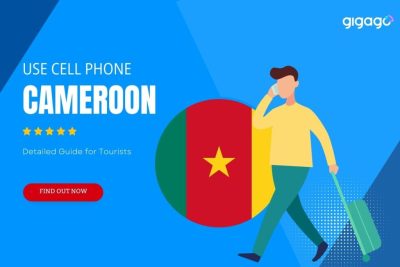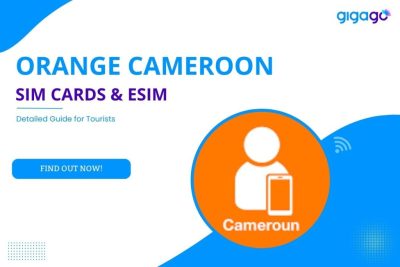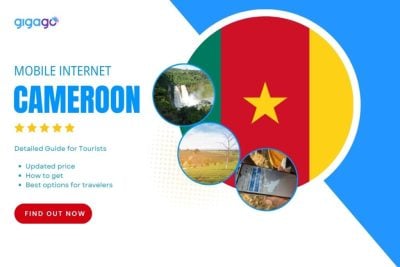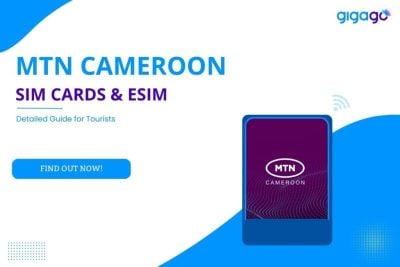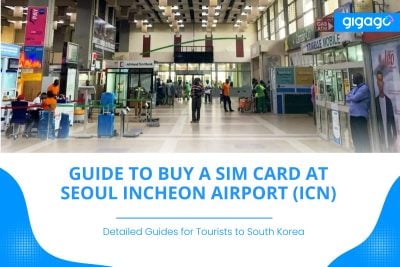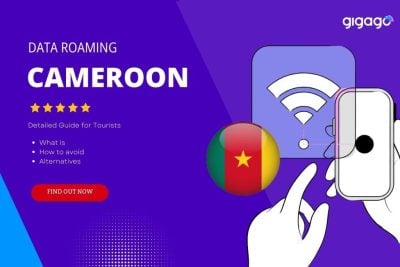This guide offers practical tips and essential insights for travelers looking to stay connected and make the most of their mobile devices in Cameroon.
Buy Cameroon SIM card for Tourists
Hey there, globetrotters! Heading to the vibrant landscapes of Cameroon and wondering about staying connected? You’re in the right place! In this handy guide, we’ll explore the ins and outs of choosing the best Cameroon SIM card options, whether you’re leaning towards a traditional SIM or the tech-savvy eSIM.
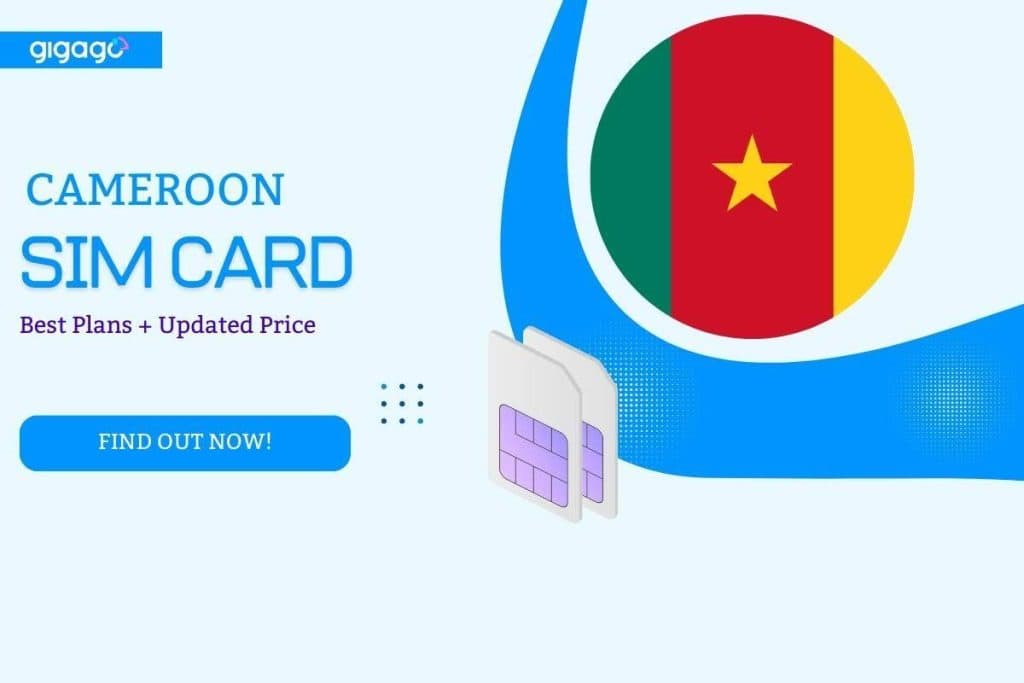
In this article
I. Should You Get a Sim Card in Cameroon?
Absolutely, yes! When you’re gearing up for your Cameroon adventure, staying connected is a no-brainer. But what’s the best way to do that? Let’s break down your options to keep you in the digital loop without a hitch. From classic SIM cards to roaming and beyond, each choice comes with its own perks and quirks. We’ve laid it all out in a handy comparison to help you figure out what suits your travel style and needs best. Whether it’s cost, convenience, or coverage you’re concerned about, we’ve got you covered. Check out this quick overview:
| SIM Card | Free WiFi | Roaming | Pocket WiFi | |
| Cost | Affordable with many plans to choose | Usually free | Most expensive | Usually expensive |
| Availability | Always available in the country | Available at some specific places | Available but might be limited and depend on operator | Easily available |
| Coverage | Broad coverage | Limited | Reliable, but depend on network and operator | Broad coverage, but depend on provider |
| Convenience | Easy to use | Easy but require searching for wifi | Seamless, but need to set up | Easy, but need to carry a device belong |
| Speed | Good | Variable depending on specific places | May vary, depends on network | Good speed but depends on provider |
| Security | Most secure and private | Risk of unsecured networks | Generally secure | Secure, but risk if device lost |
Now, let’s talk about the real MVPs: the Cameroon SIM card and its cool cousin, the eSIM. They’re all about making staying connected easy and affordable.
II. Types of Cameroon SIM Card for Tourists – Which One is the Best?
Here’s where it gets interesting. You’ve got two choices:
Prepaid Physical SIM Card:
Old-school but reliable. You can grab one at airports, mobile stores, or even some convenience stores. Pop it into your phone, and boom – you’re connected.
They come with different data packages, and you can even make local calls and texts, super handy for emergencies or just figuring out where you are.
The catch? You’ve got to physically get one and sometimes, chatting with the shop folks can get a bit confusing if you’re not on the same language page.
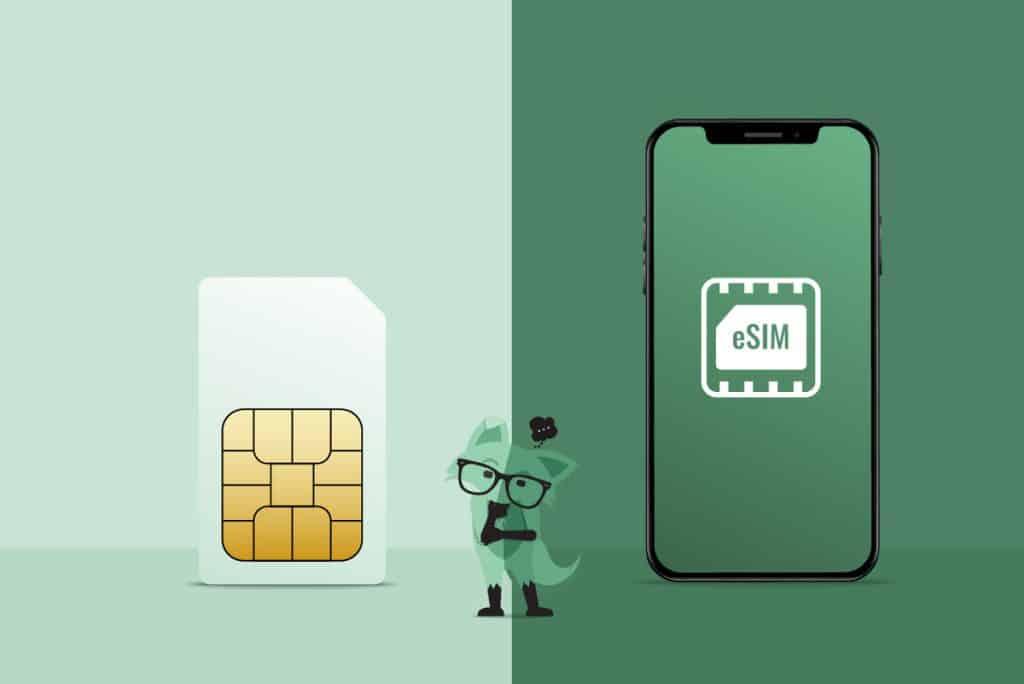
Prepaid Tourist Cameroon eSIM
The eSIM is a digital SIM, meaning no physical card. You can set it up before you even leave for Cameroon. It’s perfect for avoiding the hassle of finding a SIM card shop as soon as you land.
Plus, if your phone is eSIM-friendly, you can use your regular number and the eSIM data at the same time. The downside? Not all phones are eSIM-compatible, and the plan options might not be as varied as with physical SIM cards.
III. Where to Buy a Tourist SIM Card for Cameroon?
Looking to snag a SIM card once you touchdown in Cameroon? No sweat! The process is pretty user-friendly, especially for you, the traveller. There’s a bunch of spots where you can easily pick up a SIM card, whether you’re just stepping off the plane or you’re out exploring the cities.
Touching Down at Douala International Airport (DLA)
First things first, when you land at Douala International Airport (DLA), keep your eyes peeled for kiosks and stores right in the terminal. They’re set up there especially for folks like you. You can’t miss them. They’ve got all sorts of SIM cards – the usual prepaid ones and even info on eSIMs if that’s more your style and your phone can handle it.
One of the best parts about grabbing a SIM card at the airport is that you can get connected right from the get-go. Plus, the staff there are very helpful and speak both English and French, so you’ll have no trouble getting what you need and understanding what you’re signing up for. They’ll even help you get the SIM card up and running in your phone.
Pros:
- Immediate connection as soon as you land.
- Helpful, bilingual staff (English and French) to guide you.
- Assistance with installation and setup right there.
Cons:
- Limited selection compared to city stores.
- Might be pricier due to the convenience factor.

Beyond the Airport: Mobile Carrier Stores and Authorized Dealers
If you miss your chance at the airport or just want more options, Cameroon’s got you covered. In most major cities and towns, you’ll find carrier stores and authorized dealers for brands like MTN, Orange, and Nexttel. These places usually offer a wider range of plans, so you can find something that fits your needs just right.
Pros:
- Wider variety of plans and options.
- More competitive pricing.
- Expert advice and customer support.
Cons:
- Requires traveling from your initial destination.
- Can be time-consuming to find a store.
Looking Around: Convenience Stores and Street Vendors
When you’re wandering around urban areas, you’ll likely spot SIM cards for sale in convenience stores and even from street vendors. It’s a pretty straightforward way to get a SIM card on the fly. Just a heads up though – it’s smart to be a bit cautious in these situations.
Make sure the SIM is legit and get a receipt. If you’re not sure about something, it’s a good idea to have someone local or who knows the ropes help you out. Better safe than sorry, right?
Pros:
- Convenient and fast.
- Easy to find in busy areas.
Cons:
- Risk of purchasing invalid or unofficial SIM cards.
- Less customer support for setup and troubleshooting
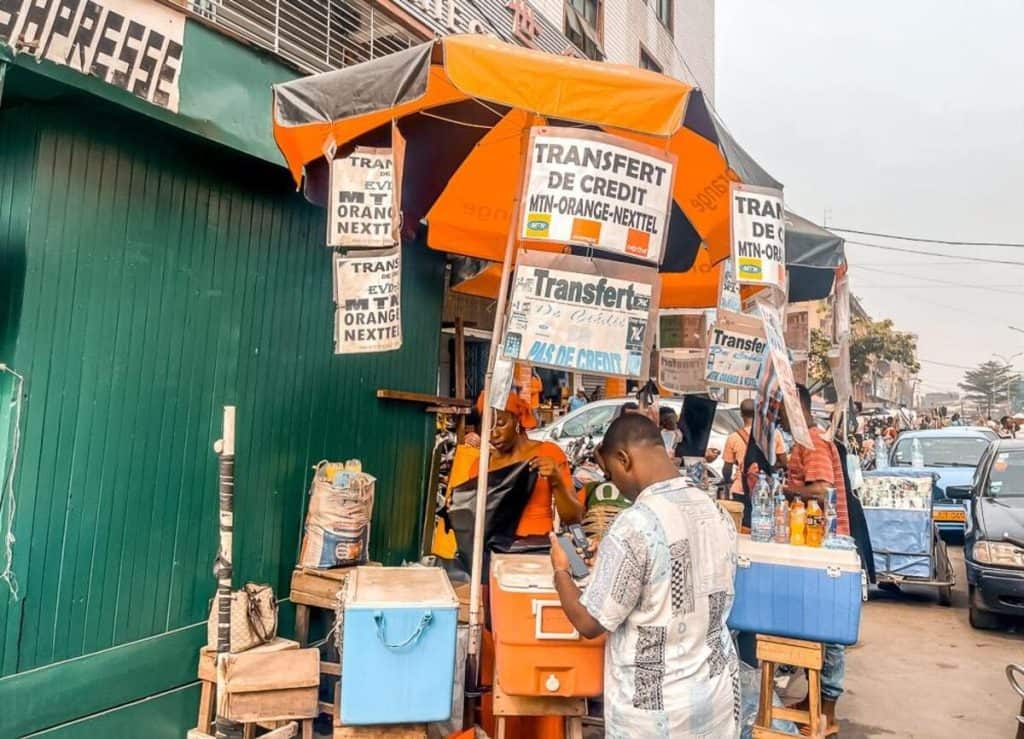
Online Purchase: The eSIM Option
If you’re the type to get all your ducks in a row before you even pack your suitcase, then grabbing an eSIM online for your Cameroon adventure is right up your alley. Picture this: sorting out your phone’s data plan while you’re still in your PJs, sipping coffee. That’s the kind of easygoing prep we’re talking about with an eSIM, or as I like to call it, your digital ticket to hassle-free connectivity.
Gone are the days of fumbling with tiny SIM cards. With an eSIM, you’re stepping into a world where everything is just a few clicks away. Think of it as your ‘connect-from-anywhere’ pass. You land in Cameroon, switch on your phone, and boom – you’re connected, just like magic. No lines, no looking for a store after a tiring flight, just you, your phone, and the open road (or city streets!).
Pros:
- Set it all up from home – no airport hustle or store-hunting needed.
- Say goodbye to physical SIMs and hello to more space in your wallet
- If your phone is a dual SIM one, you can juggle your home number and your new Cameroonian data plan like a pro.
Cons:
- Not all phones are eSIM ready yet, so do a quick check to see if yours is.
- Setting up an eSIM is easy-peasy but does need you to be a bit tech-savvy.
IV. Figuring Out Your Data Needs in Cameroon: How Much is Just Right?
When you’re packing your bags for Cameroon, figuring out how much data you’ll need is a bit like deciding how many pairs of shoes to bring – it all depends on what you plan to do. Let’s break it down into some common tourist scenarios so you can hit that ‘just right’ sweet spot.
For the Basics: Social Media, Maps, and Email
If your phone use is mostly about checking emails, posting the occasional selfie, or using maps to explore the city, you’re in the ‘light usage’ zone. For this, a modest data plan of around 1GB to 2GB should keep you covered for a week. Just a heads-up, though: if you’re relying on maps to get around a lot, that can eat up more data than you’d think, especially if you’re always on the go.
Stepping It Up: Music, Photos, and Video Calls
Now, if you’re the kind of traveller who loves streaming tunes on the road, sharing those gorgeous travel snaps on Instagram, or catching up with folks back home via video call, you’ll need a bit more juice. For these kinds of activities, aim for a data plan in the 3GB to 5GB range for a week.
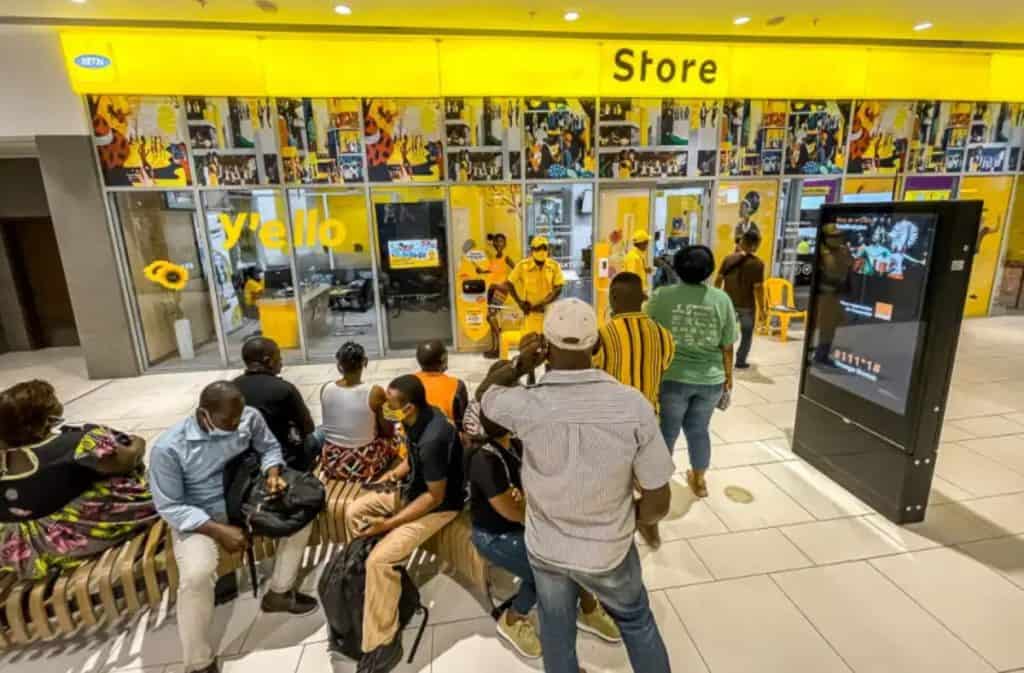
Tailoring to Your Trip Length
The suggestions above are based on a week’s stay. If you’re staying longer (lucky you!), adjust your data plan accordingly. Most carriers in Cameroon are pretty flexible, offering larger plans or easy top-ups as needed.
Keep an Eye on Your Data
Nobody likes nasty surprises, so keep tabs on how much data you’re using. Most smartphones have a way to track this, and it’s super handy for avoiding running out of data at the worst possible moment. And hey, whenever you can, hop onto Wi-Fi, especially for those data-guzzling activities. It’ll help your data plan last longer.
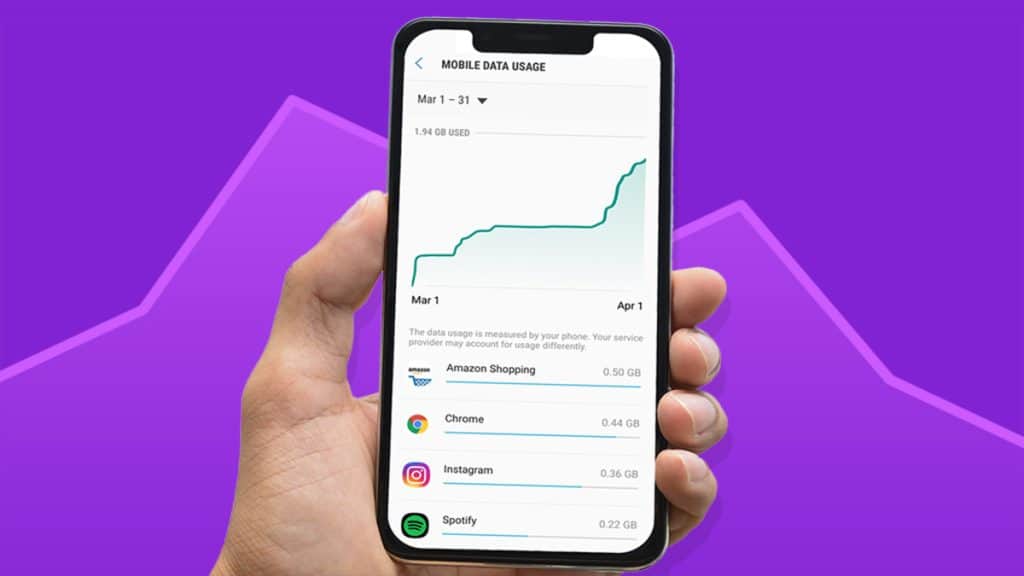
V. Cameroon eSIM: The Game-Changer in Mobile Connectivity for Travelers
Stepping into Cameroon with an eSIM is like having a digital key to the city. In the world of mobile technology, where change is the only constant, the eSIM (embedded SIM) stands out as a revolutionary step, especially for you, the global traveler. Let’s dive into what an eSIM is and why it might just be your best travel buddy in Cameroon.
Decoding the eSIM Technology
Think of an eSIM as a futuristic version of the traditional SIM card. It’s a digital SIM embedded right in your smartphone, reprogrammable on the go, ditching the need for a physical SIM card. This tech-savvy little tool is compatible with a bunch of the latest smartphones, so it’s worth checking if your device is eSIM-ready before you jet off to Cameroon.
Why an eSIM Rocks for Your Cameroon Adventure
- Convenience and Early Setup: Picture this: You’ve picked your eSIM plan and set it all up while you’re still packing your bags. As soon as your plane touches down in Cameroon, bam! You’re connected. This means no wandering around looking for a SIM card shop right after your flight.
- Say Goodbye to Physical Swaps: With an eSIM, there’s no fiddling around with tiny cards. It’s great for travelers who want to keep their home number active and just need a local data plan in Cameroon.
- Flexibility and Choice: Traveling across different regions in Cameroon? The eSIM lets you switch between network operators and plans as you move, without the hassle of swapping out SIM cards.
- Space-Saving and Green: No physical SIM cards mean less plastic, making eSIMs an eco-friendlier choice. Plus, it frees up the SIM tray in your phone for dual-SIM use – keep your home number and use the eSIM for data.
- Upgraded Security: The eSIM’s embedded nature makes it tough to lose or damage and harder for the bad guys to tamper with, giving you an extra layer of security.
- Things to Consider with eSIMs: Before you leap into the eSIM pool, make sure your device can swim – check for eSIM compatibility. Also, while eSIM plans are popping up everywhere, they might offer different perks compared to physical SIM cards. A little research before your trip can save you a lot of hassle later.
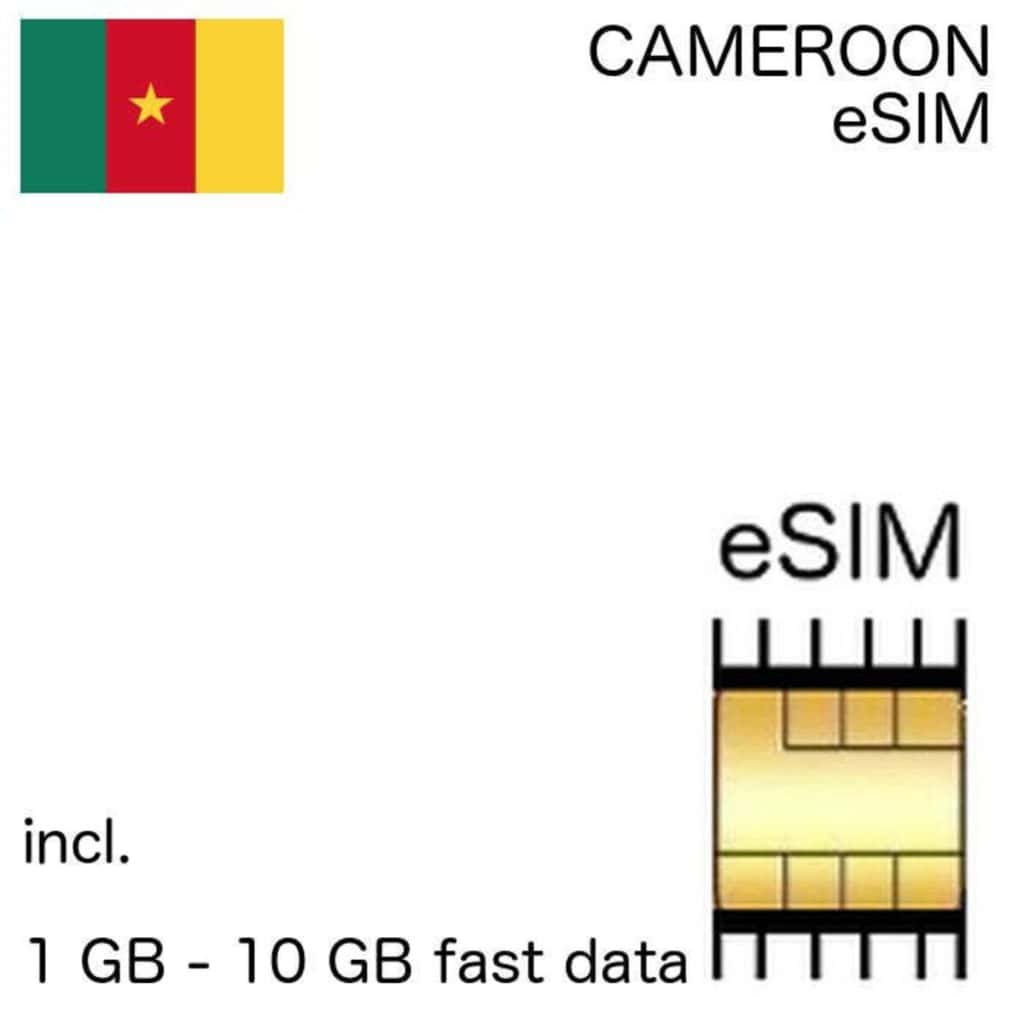
VI. Picking the Best Mobile Network for Your Cameroon Adventure
Heading to Cameroon and wondering which mobile network to hitch your wagon to? It’s a big decision, as your phone’s going to be your trusty sidekick on this trip. Cameroon boasts three major players in the mobile network game: MTN, Orange, and Nexttel. Each has its own set of perks and quirks, so let’s break it down to help you make the perfect pick for your travel style.
MTN Cameroon: The Crowd-Pleaser
MTN is kind of like that popular kid in school – everyone knows them, and they’re everywhere. They shine in big cities like Yaoundé and Douala, offering solid coverage. But they don’t just hang out in the urban jungle; they’ve got a presence in rural spots too. MTN is great if you’re dipping in and out of different kinds of places.
They’ve got a bunch of prepaid plans, perfect for short stays, and their customer service is top-notch. Handy for when you need a little help, and they speak both English and French – score!
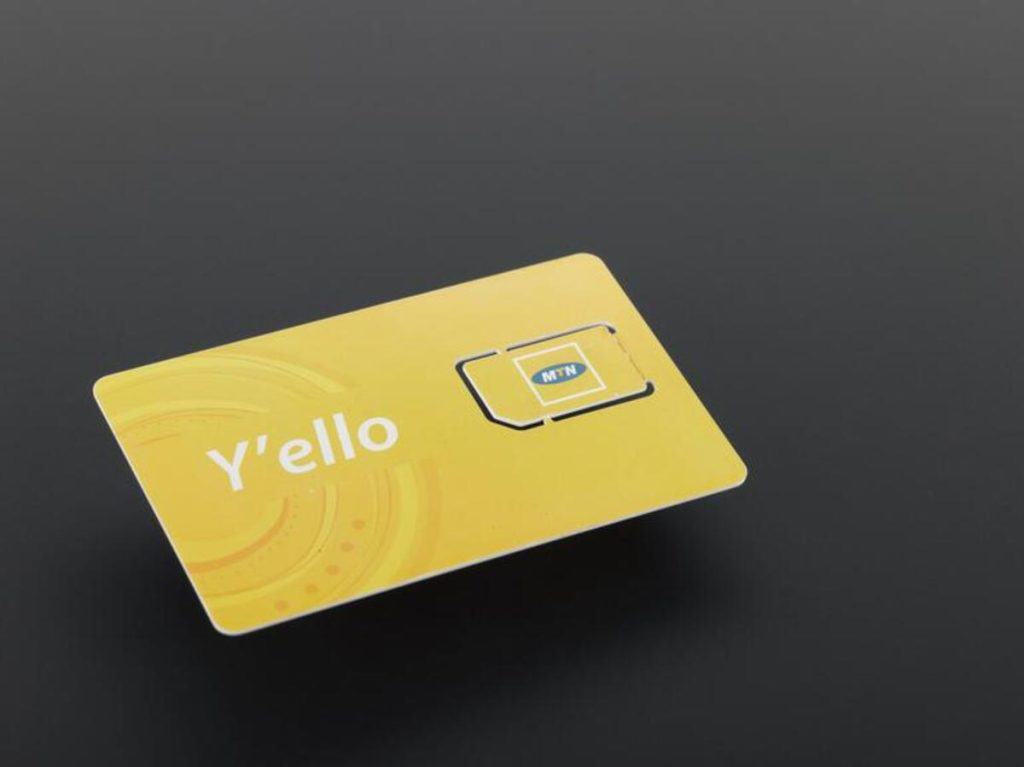
Orange Cameroon: The Speedster
If you’re all about that fast internet life, Orange is your go-to. They’re known for zippy internet speeds, especially in city areas. So if you’re planning to spend most of your time around the urban buzz, they’ve got you covered with some seriously good 4G action.
Plus, they offer competitive data deals and have helpful folks at customer service centres in the usual tourist haunts.
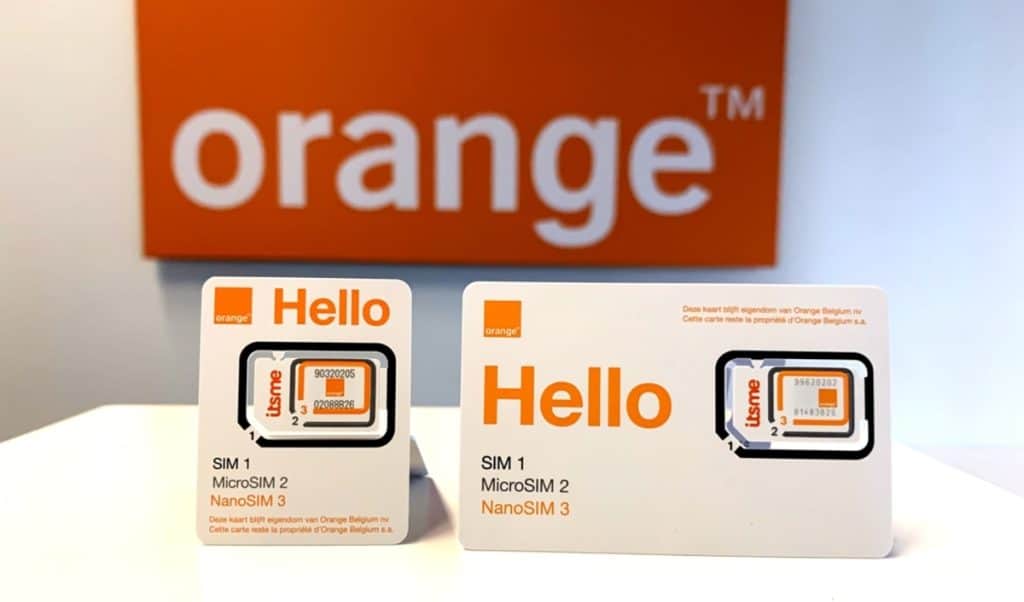
Nexttel: The Wallet-Friendly Choice
The new kid on the block, Nexttel, has been making waves with its wallet-friendly data plans. If you’re watching your budget but still want reliable service, give them a look. While they might not have the extensive reach of MTN or Orange in far-flung areas, they do a pretty solid job covering most places tourists like to wander.
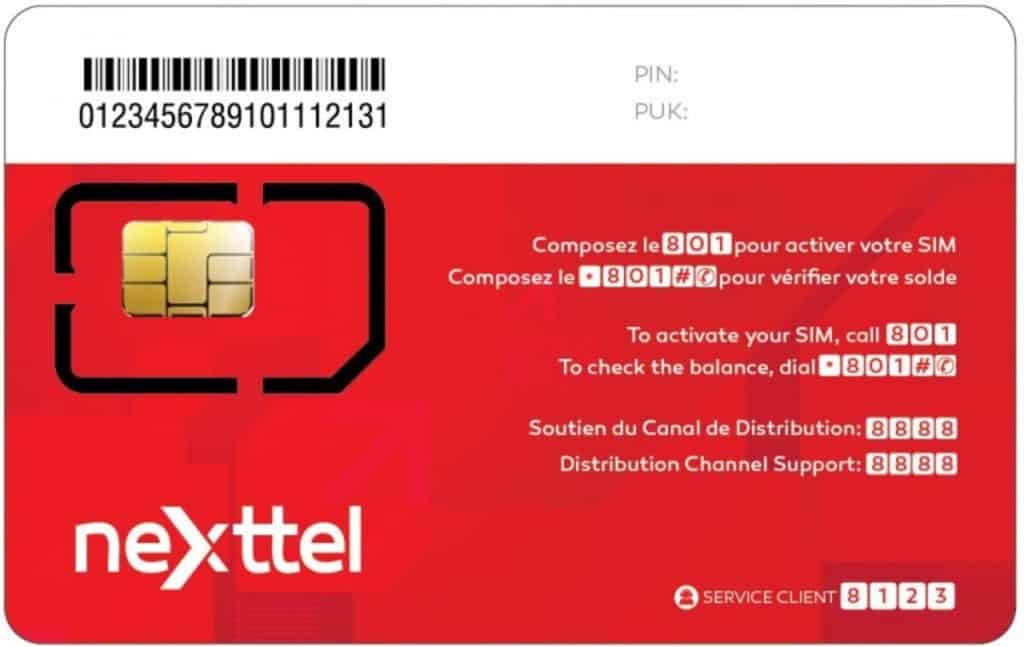
Tourist-Friendly Vibes All Around
The good news? All three networks are pretty clued up on what us travellers need – think easy-to-buy prepaid plans, English-speaking help, and kiosks right where you need them, like airports and popular spots. When picking your network, think about where you’re going to be most of the time and what you need from your phone.
Fast internet? Coverage off the beaten path? A plan that doesn’t break the bank? Cameroon’s got you covered.
VII. Getting Connected in Cameroon: A Simple Guide to Using SIM Cards and eSIMs
So, you’ve landed in Cameroon and you’re ready to explore. But first things first – let’s get you connected. Whether you’re going for a traditional SIM card or trying out an eSIM, I’ve got you covered with some easy steps to get started.
Using Prepaid Cameroon Tourist SIM Cards
- Grabbing Your SIM: Once you’ve picked a network that suits your vibe, head over to an airport kiosk, a carrier store, or an authorized dealer to buy your prepaid SIM card. In Cameroon, they’ll usually ask for your passport to register the SIM – it’s all standard stuff, and the folks at the store will help you through it.
- Choosing Your Plan: Think about what you need – just some casual browsing and calls, or are you a data powerhouse? The prepaid SIM cards come with all sorts of options, from local calls to international roaming, and, of course, data packages. The store reps are usually pretty helpful in breaking down the plans for you.
- SIM Card Setup: Pop that new SIM card into your phone. Make sure your phone is unlocked and plays nice with Cameroon’s networks. The SIM slot is typically on the side or under the battery. Just follow the simple instructions, usually involving lining up the gold chip correctly, and you’re all set.
- Activation Time: Turn your phone off and on again, and voila – you should get a confirmation message that you’re good to go. Keep an eye on your data usage in your phone settings to avoid any surprises.
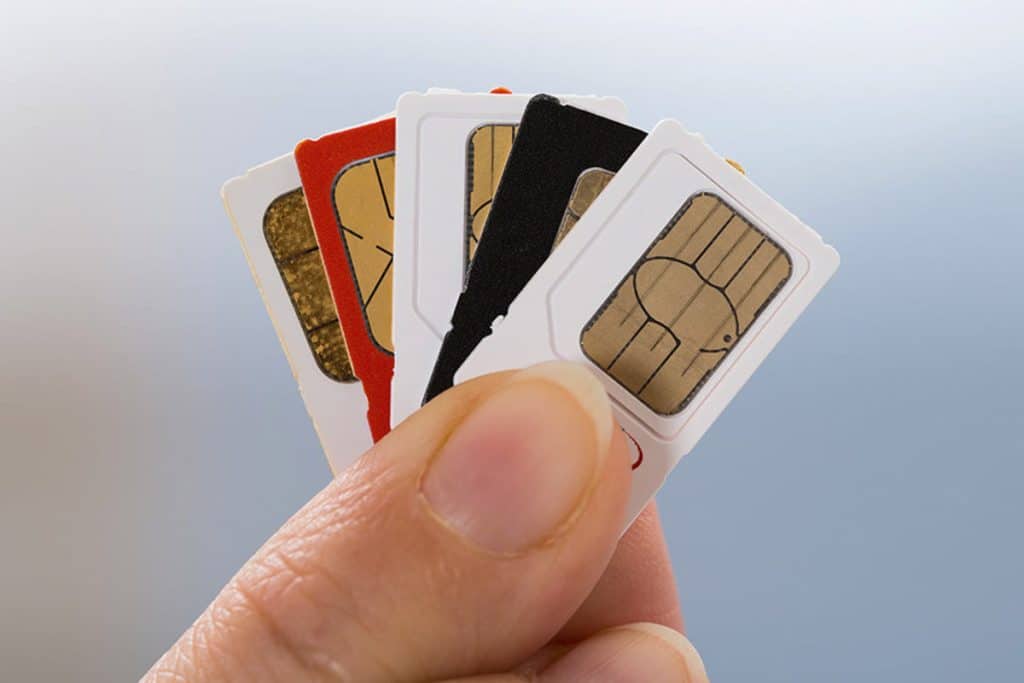
Setting Up and Activating a Cameroon eSIM
- Buying Your eSIM Plan: You can snag an eSIM plan online from various providers. Just double-check that your smartphone is eSIM-ready and that the provider supports your phone model.
- Scanning the QR Code: After buying, you’ll get a QR code (usually in an email). Head to your phone settings, find the cellular or mobile data section, and choose to add an eSIM. Then, simply scan the QR code.
- Configuring Your eSIM: Follow your phone’s prompts to set up the eSIM – it’s like giving your phone a quick tutorial on what to do. Label it something like ‘Cameroon Data’ for easy reference. Once it’s set, the eSIM will kick into action, and you’ll be connected to your chosen network.
- Using Dual SIMs: Got a dual SIM phone? Perfect! You can keep your regular number active for calls and texts and use the eSIM for your data needs. It’s like having the best of both worlds in your pocket.
VIII. FAQs
Got questions about staying connected in Cameroon? No worries! Here are some quick answers to the most common queries:
Do I need ID to buy a SIM card in Cameroon?
Yep! When you’re picking up a physical SIM card, you’ll need to show some ID, usually your passport. It’s just a standard thing for registration – nothing to sweat about.
Will my phone work with Cameroon’s networks?
Chances are, it will. Most modern phones play nicely with Cameroon’s networks, which use GSM technology. Just to be on the safe side, check if your phone is cool with the frequencies over there (900 MHz and 1800 MHz for GSM, 2100 MHz for 3G, and a few different ones for 4G).
Can I top up my SIM online?
Absolutely! It’s super convenient – most networks in Cameroon let you recharge your SIM online through their website or app.
Help! What if my eSIM isn’t working?
First, make sure your phone is actually eSIM-compatible and that you’ve followed the setup steps correctly. Still no luck? Time to call in the cavalry – reach out to the eSIM provider’s customer support.
Is roaming an option with these SIM cards?
Some networks do offer roaming services, but it’s usually kinder to your wallet to stick with a local SIM card or eSIM when you’re roaming around Cameroon.
IX. Conclusion
So, there you have it! Whether you’re leaning towards a good old-fashioned SIM card or the snazzy new eSIM, each has its perks depending on what you’re looking for. Physical SIMs are great for those who like the traditional feel. eSIMs? They’re all about making life easier with quick setup and instant connection. Dive into the culture, soak up the scenery, and enjoy the comfort of staying connected as you explore this beautiful corner of the world!
